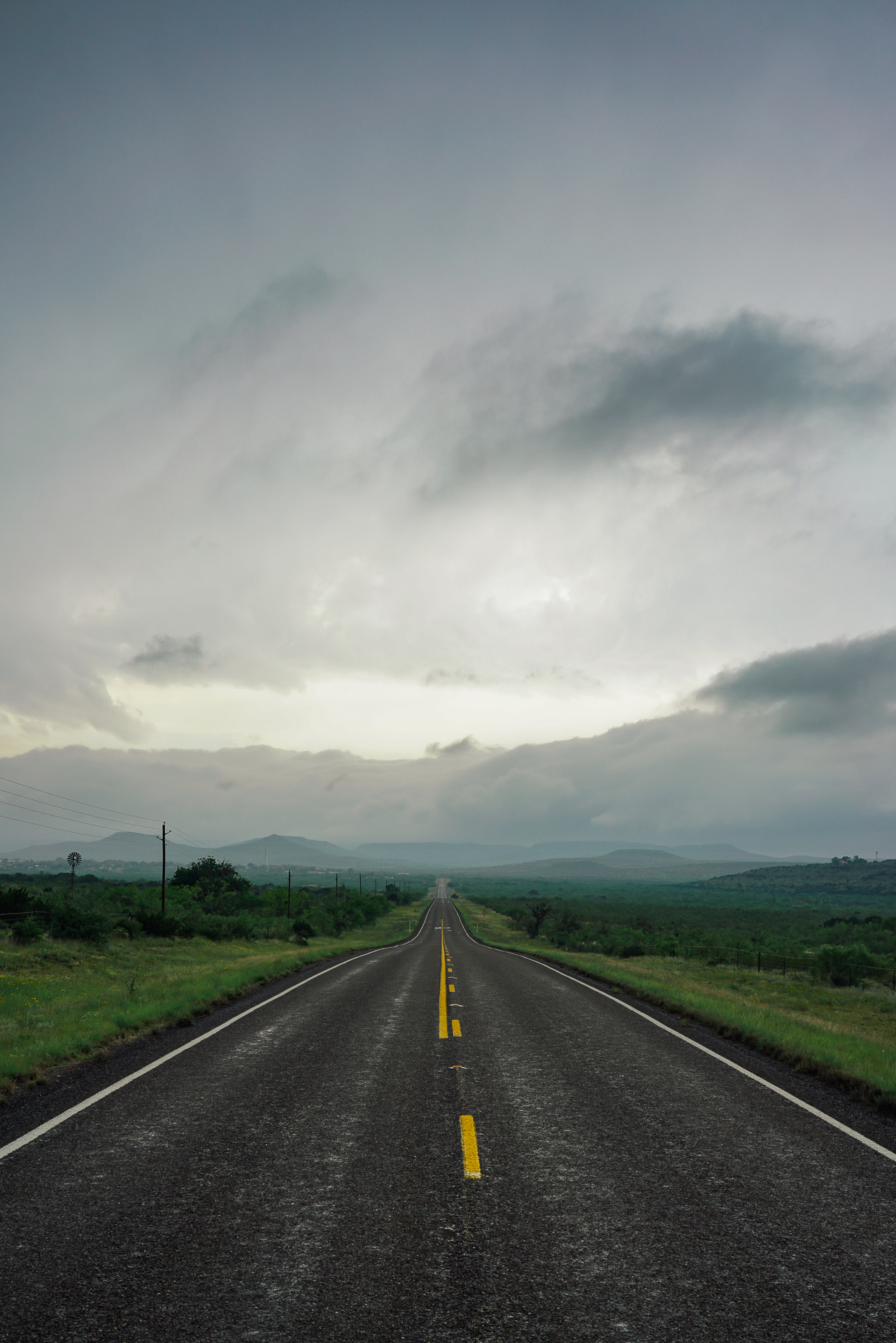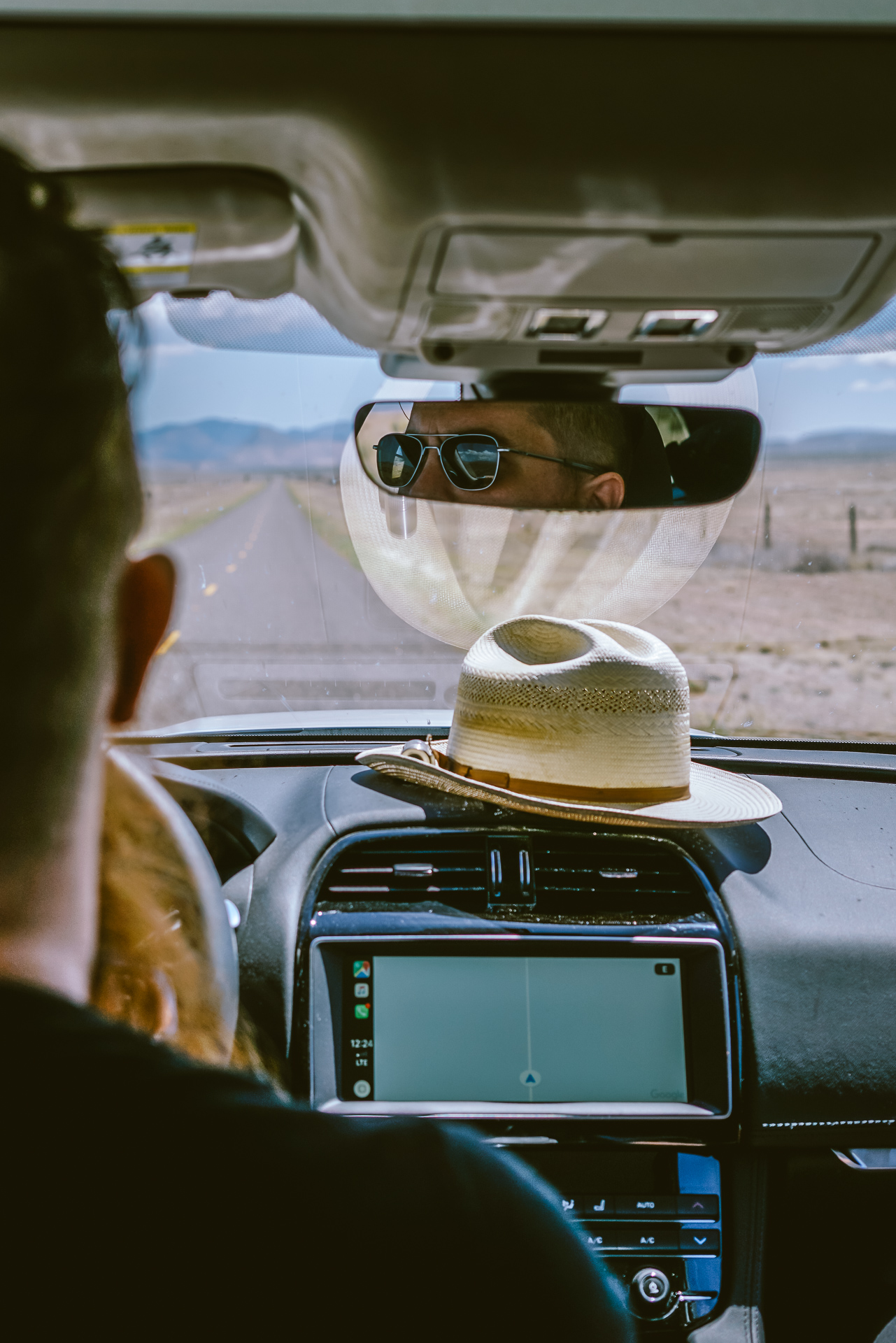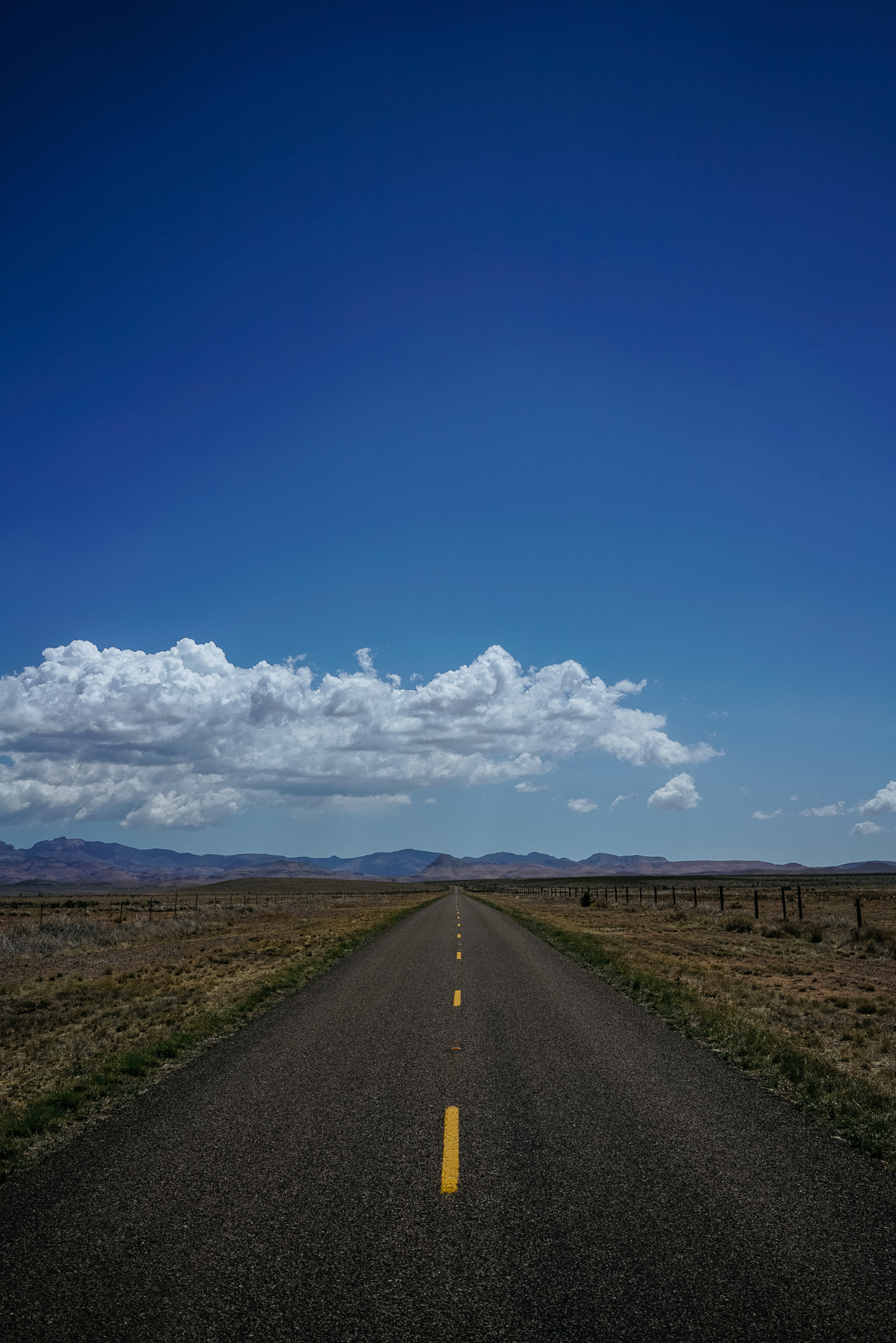Two Thousand Miles for Tacos

“Wait, what’s all this about Texas all of a sudden? We recently found ourselves desert-bound, with the goal of testing our Electric Torches against the darkest skies in the lower 48 states. A new moon and billions of stars waited for us, but first, there was another matter to attend to…”
Texas is enormous.
Its scale defies most superlatives, particularly when juxtaposed against the smallness of a Jaguar F-Pace in pursuit of the horizon at eighty miles per hour. Behind this vehicle that’s been stuffed to the gills with photography gear, camping gear, and all the various roadtrip essentials needed by four explorers, the endless Texas tarmac unfurls like a cassette tape ejection gone awry, disappearing into an equally unending blue and beige canvas that once was the city limits of Austin.
Texas is over eight hundred miles wide. It’s bigger than all of France, and it's bigger than the state of California, most of Nevada, Utah, and Arizona combined. Its topography feels simultaneously martian and hostile at times, but strangely inviting – as though the vast expanse of its deserts could still hold secrets not yet explored. Mankind may know more about the surface of the moon than we do ninety-percent of the ocean floor, but out here in the vastness of West Texas, we are simply playing the odds perceived – gripped by the similar hopes of coming face-to-face with the prospect of the unknown. Storm clouds threaten. The vehicle is quickly doused, and then returned to scorching heat in a matter of minutes. Semi-green rolling hills are replaced by scraggly brush, and a yellow-orange landscape in all directions, split by Interstate 10 – America’s southernmost cross-country highway. The blue sky still persists. Three hundred miles to go, in a trip that will ultimately put two thousand new ones on the odometer.
Our goals for this adventure are multi-faceted, but our first destination is singular: the border town of Ojinaga, Mexico where tacos 'Al Pastor' await. Depending on who you ask, the noble ‘al pastor’ (directly translated: 'shepherd style’) is quietly considered the true bar against which the quality of a Northern Mexico taco establishment can be judged. Historically speaking, al pastor isn’t native to Mexico – it was introduced to the region by Lebanese immigrants, as a derivative from shawarma or doner kebab. And just like that Middle-Eastern staple, al pastor takes a familiar shape – as an inverted cone of stacked pork, thinly sliced and slow-roasted on a vertical rotisserie (called a 'trompo’). We place our order, and the cooks deftly slice bits of tender pork off the spit with a large knife, sautéing them on a flat griddle, where nearby, handmade corn tortillas are being carefully warmed.
“We didn’t come all this way to eat. We came here to feel.”
We wolf down the first round of tacos. Each is garnished with finely diced onion and cilantro, fresh lime and handmade green salsa, then washed down with an ice-cold Mexican Coca-Cola – requisite in the heat of the midday. Another round appears, devoured in a similar manner. For a moment, the vastness of the highway, and the reality of two inhospitable deserts split betwixt by maligned ideals, each fall away, eclipsed by the familiar comfort of refuge in an unfamiliar place. We didn’t come all this way to eat. We came here to feel. And suddenly, the return crossing back into the United States and three-hour drive to our campsite later that night doesn’t feel quite like a bridge too far. We’d do it all again, just to feel exactly like this, once more.
Ernest Shackleton perhaps most fittingly described this inclination to seek the unknown, noting that some men “…are actuated by adventure, others by the thirst for knowledge. Others still are drawn away from the trodden paths by the mysterious fascination of the unknown.” For others still, it’s quite simple: tacos.
Always seeking,
- Muyshondt








